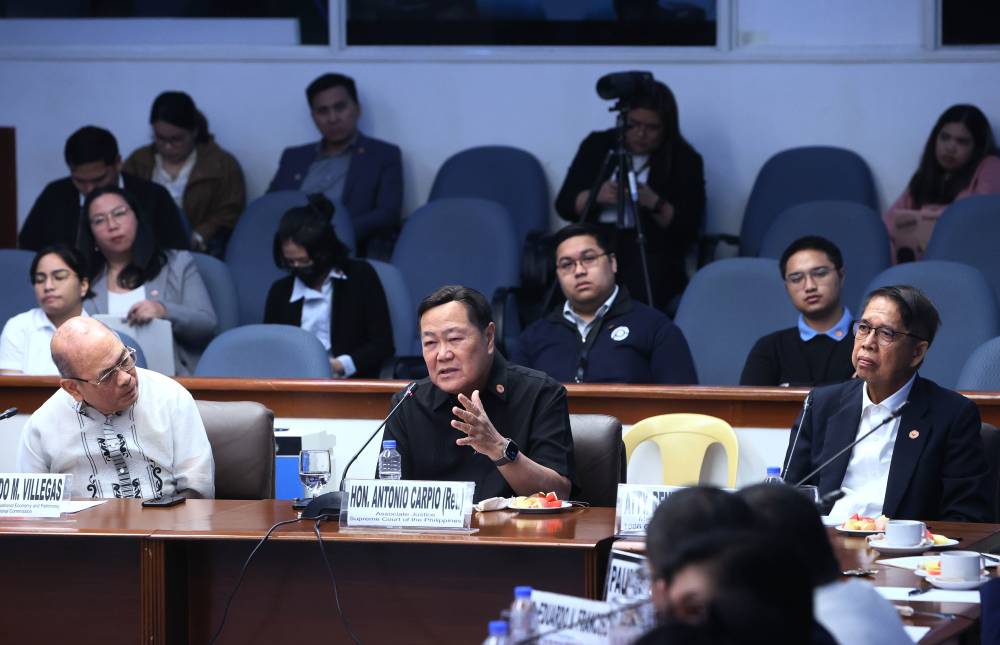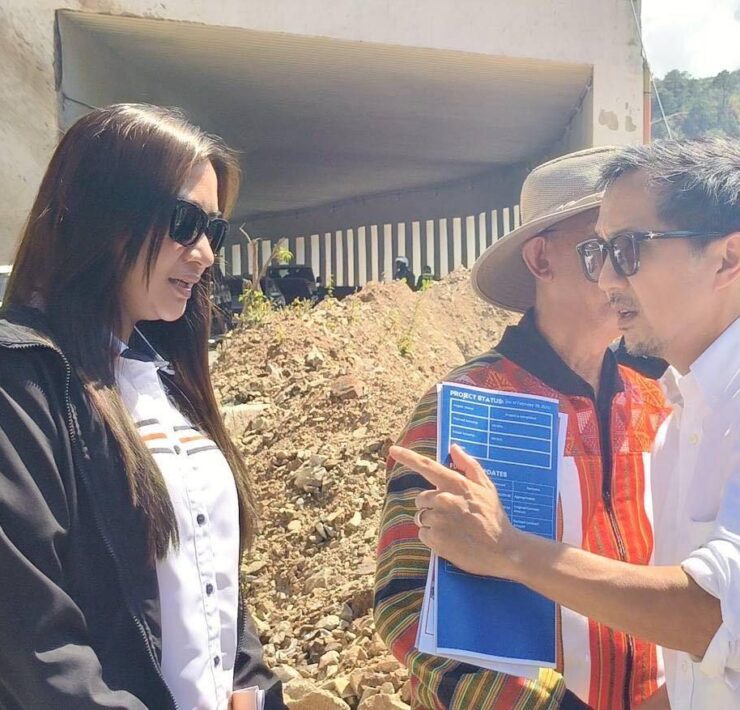Cha-cha: No for framers, yes for foreign chambers

Three members of the body that crafted the 1987 Constitution on Monday opposed the plan to amend the Charter, but foreign companies operating in the country—the expected beneficiaries of the proposal—supported government efforts to ease the restrictions on foreign ownership in economic sectors still protected by the Charter from non-Filipino investors.
These opposing views on Charter change (Cha-cha) were aired during the resumption of the hearings by the Senate subcommittee on constitutional amendments and revision of codes on Resolution of Both Houses (RBH) No. 6, which seeks to amend certain economic provisions of the Constitution.
Economist Bernardo Villegas, who headed the committee on national economy and patrimony of the 1986 Constitutional Commission, said this was not the opportune time as the government has to tackle two pressing economic conditions.
First, he said, President Marcos and his economic team should address the country’s “scandalous” poverty incidence of 21 percent, currently the worst in the Southeast Asian region.
Secondly, he added, the government needed to secure at least $15 billion in foreign direct investments annually until the end of the President’s term in 2028.

However, Villegas agreed that there was a need to modify the Charter to make the economy more attractive to foreign capital.
“I’m the first one to say that sooner or later we have to amend this very imperfect Constitution of 1987,” Villegas said at the hearing presided by Sen. Juan Edgardo Angara.
“The question right now is timing,” he stressed. “I do not think that we need Cha-cha today.”
Liberal investment laws
Two other framers of the Constitution, lawyer Rene Sarmiento and Florangel Braid, also rejected Charter change.
“Revising the economic provisions will not be the ‘Midas touch’ that will unlock the economic prospects and promise of the Philippines,” Sarmiento said.
According to him, altering portions of the Charter “will be the spark that can start a prairie fire of succeeding amendments concerning political, judicial, social justice and human rights provisions.”
Braid, who participated in the hearing online, said the constitutional 40-percent limit on foreign ownership of major businesses should be kept intact to protect the country’s sovereignty and security.
For retired Supreme Court Senior Associate Justice Antonio Carpio, Cha-cha movers had been giving “false reasons” in blaming the prohibition on full foreign business ownership for the country’s lackluster economic growth in the past four decades.
In fact, he said, the Philippines now has “one of the most liberal foreign investment laws” after the enactment in March 2022 of Republic Act No. 11659, which amended the Commonwealth-era Public Service Act.
Protection by legislation
In support of Charter change is the Joint Foreign Chambers of the Philippines (JFC), which groups the American, Australian-New Zealand, Canadian, European, Japanese and Korean chambers of commerce in the Philippines, representing more than 3,000 member companies in various industries.
“We are of the opinion that the removal of economic restrictions would facilitate increased foreign investments in sectors where such investment is currently restricted,” said Julian Payne, president of the Canadian Chamber of Commerce of the Philippines, who represented the JFC during the hearing.
Payne said the JFC recognized that the government’s mandate and duty in all countries was to protect national interest.
“That happens in every country,” he said, but noted that for most national economies, such interest was protected by the use of legislation or executive action, “not in the Constitution.”
“The advantage of using legislation or executive action is that with these forms of regulation, both legislature and or the executive can quickly adjust to changing business conditions in the international environment,” Payne pointed out.
“If the Filipino people decide to amend the Constitution, we would actually be in favor of removing the economic restrictions from the Constitution,” added Florian Gottein, executive director of the European Chamber of Commerce in the Philippines.
Turned off by bureaucracy
While he agreed with the foreign chambers, financial industry representative Eduardo Francisco, president of BDO Capital and Investment Corp., said foreign investors were turned off not by ownership limits “but by bureaucracy, red tape and corruption.”
“Just an example, for foreign investors we talked to regarding renewable energy, it still takes 167 signatures for a project to get approved. So even if we have the Renewable Energy Act, trade liberalizations and tax benefits, [the approval process] just takes so long, it takes around five years,” Francisco said.
“That’s crazy, 167 signatures,” noted Angara.
“It’s actually gone down, a few years back (the required signatures) was 250. But unfortunately, 167 is really, I agree, crazy. That’s really the real bottleneck. So even if we’re all one in wanting to have more energy that is cheaper, what’s preventing the investors from actually getting the project is all the bureaucracy,” Francisco said.
“I also agree with the foreign chamber… any change that can improve the investment (climate) in the country. But what’s more important are the low-hanging fruit[s] … if your honors can do something there, that really helps spur more investment,” Francisco said.





















